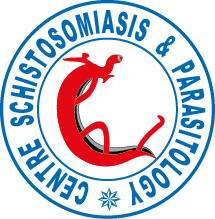Schistosomiasis and soil-transmitted helminthiasis control in Cameroon and Côte d’Ivoire: implementing control on a limited budget.
Abstract
Schistosomiasis and soil-transmitted helminthiasis occur throughout the developing world and remain a major public health problem in the poorest communities with enormous consequences for development. The extent of the problem has long been neglected because these diseases rarely kill at a young age and also because of their insidious nature. Today there exists a momentum and an unprecedented opportunity for a cost-effective control of these neglected tropical diseases. The control of these diseases has become a priority on the agenda of many governments, donors and international agencies. This paper highlights the progress made and future control activities in Cameroon and Côte d’Ivoire, where schistosomiasis and soil-transmitted helminthiasis control measures have been implemented over the past decade with limited budgets. In Cameroon, deworming activities were increased to encompass all ten regions in 2007 as a result of a co-ordinated effort of the Ministry of Health and the Ministry of Education with national and international partners. In Côte d’Ivoire, focal control activities were achieved with support from various partners. Prospects, opportunities and challenges for the control of neglected tropical diseases in these two countries are discussed.
